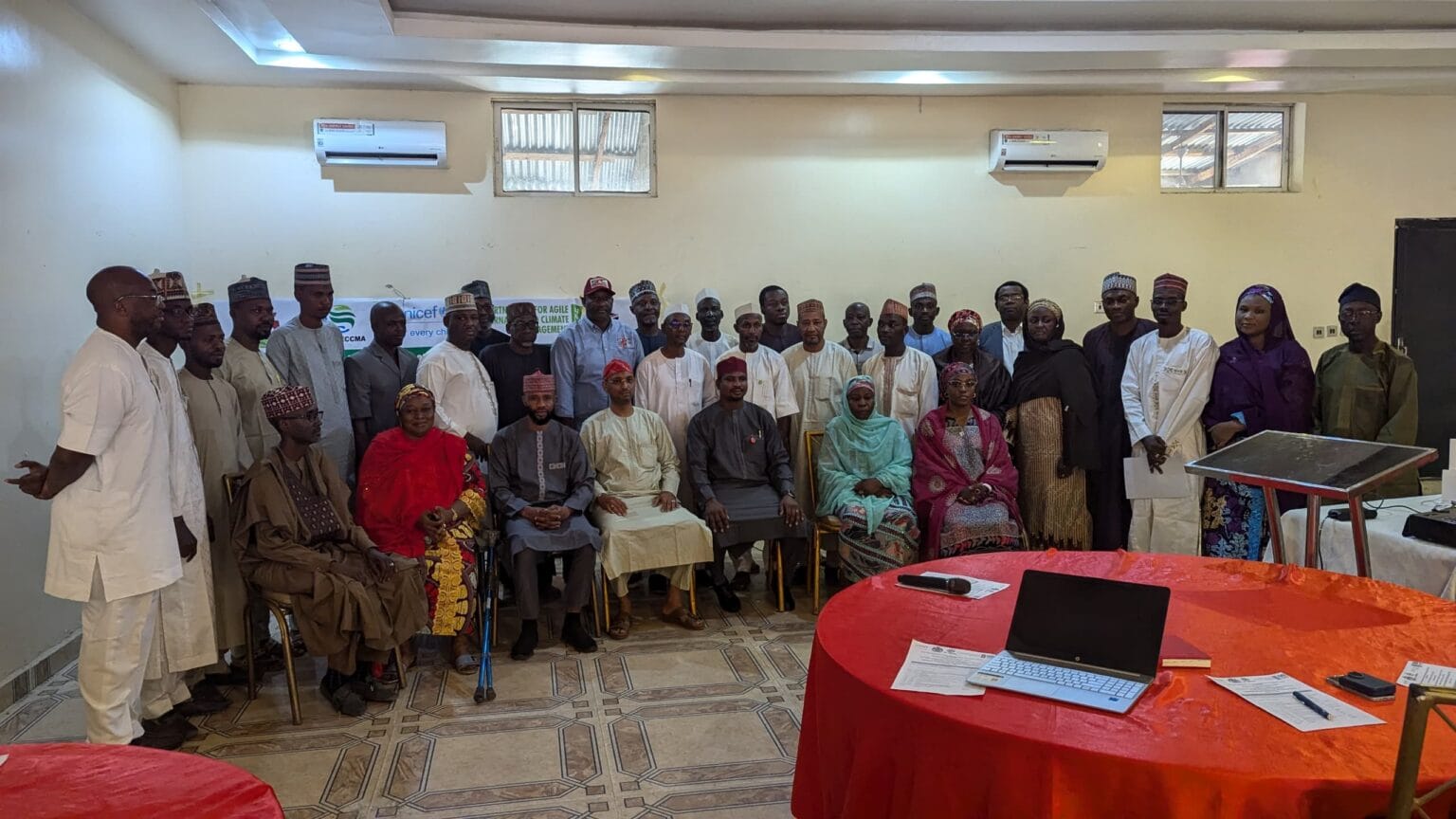By Usman Usman Garba
Kano State Watershed, Erosion and Climate Change Management Agency (Ministry of Environment and Climate Change), in collaboration with the United Nations Children’s Fund (UNICEF) and Partnership for Agile Governance and Climate Engagement (PACE), has validated Kano State’s Climate Change Policy.
The validation held on Thursday at Ten to Ten Restaurant, Alu Avenue, Nassarawa GRA encompassed several stakeholders from different sectors of Kano State Government, ministries, departments, and agencies as well as participants from academics, NGOs, Civil Society and many sectors of the society as inputs were collected in on how to develop climate change policy in Kano State.
During the interaction session of the final stage (validation), the Hon. Commissioner for the Environment, Alhaji Nasiru Sule Garo, appreciated the efforts of the Kano state government to pay much attention to climate change in the state.
He also thanked the developmental partners, academics, civil society and all relevant stakeholders for their contributions, promising that their contributions should not be taken for granted and a good policy would be adopted for the benefit of the good people of Kano state.
Also, Stella Terver, UNICEF WASH Programme Officer, Kano Field Office, reiterated the commitment of the UN agency to partner with the Kano government in tackling the impact of climate change in Kano.
She said, “A few weeks ago, we supported the Kano State Government in the finalization of climate change policy, and one of the outcomes during the finalization is that there should be a validation of the reviewed version.
Mrs Terver has, however, stated that the validation was looking at the holistic picture of what has been incorporated.
“All the inputs made by general experts during the finalization would be incorporated so that the state will have a global and standardised policy in place that will help them in assessing global climate change,” she added.
She has lastly assured the general public and good people of Kano State that the validation and issues of tackling climate change would bring a lot of positive impact to the people of Kano.
On his part, Dr Muhammad S. Khalid, the Executive Secretary of Kano State Watershed, Erosion and Climate Change Management Agency, highlighted that the program was started in February 2024, where various inputs were collected by different stakeholders on climate change policy.
He said, “We started in February 2024, when we had our first stakeholder engagement. We invited various sectors, both government and non-governmental-organization as well as civil society and academics to develop climate change policy for Kano state.
“In July 2024, we gathered again at Tahir Guests Palace, where we reviewed the first draft and added more inputs. It was a technical session, and we reviewed the document.
“Last week, we gathered at Dutse, Jigawa state, to review the second draft of the climate change policy and today, 7th of November, 2024, to validate the policy and later, present it to the executive governor of Kano state, Engr Abba Kabir Yusuf.
Similarly, Auwalu Hamza, the state team leader for Partnership for Agile Governance and Climate Engagement (PACE), funded by the UK Foreign Commonwealth and Development Office, suggested that the validation stage would collect information, devices and other various components of data that would support and putting together the policy document.
Recall that the initial stakeholders’ engagement had started on February 2024, and during the engagement supported by the Partnership to Engage, Reform & Learn (PERL), stakeholders were introduced to the policy’s objectives and framework, including Kano’s priority areas like climate adaptation, mitigation, and community resilience.
However, the second Stakeholders’ Engagement (July 2024), supported by PERL and UNICEF, allowed for in-depth discussions on policy details, specific climate issues relevant to Kano (e.g., agriculture, land use, water resource management, erosion control), and strategies proposed for inclusion.
Hence, a lot of stakeholders gave input on aligning the policy with international standards and local needs, ensuring that the policy is comprehensive and implementable.
After the engagement, which the Ministry of Planning & Budget and Ministry of Finance were part of, the process of developing the 2025-2027 Medium Term Expenditure Framework began, which was also the starting point for greening the Kano State Budget.
During this, the MoPB, with technical guidance from the Foreign Commonwealth & Development Office (FCDO)’s Partnership for Agile & Climate Engagement (PACE) programme, a successor of the PERL programme provided for Climate Response Reserve in the MTEF.
Thus, the MTEF Sensitization, climate-related MDAs were advised to make provisions clearly and indicate climate-change action expenditure in their submissions.
Recently, the MoPB commenced the consolidation of the 2025 Budget, clearly tagging and coding climate change expenditure and the next line of action would be to ensure proper coordination among these MDAs to support the effective implementation of the Climate Change Policy when approved.
